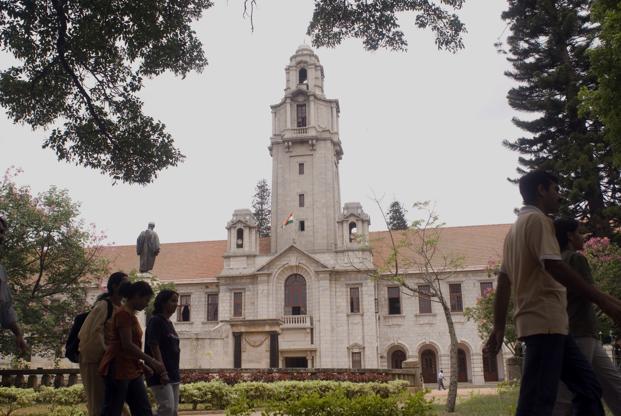 The panel was set up to make recommendations that would pave the way for new education policy after a gap of nearly three decades. Photo: HT
The panel was set up to make recommendations that would pave the way for new education policy after a gap of nearly three decades. Photo: HT
New Delhi: In 2014, there was a debate on whether two shortlisted “foreigners” should be paid more than the stipulated salary for heading two top B-schools in India—the Indian Institutes of Management in Ahmedabad and Bengaluru (IIM-A and IIM-B).
The two persons were Ashish Nanda from Harvard Law School and Sushil Vachani from Boston University. After the boards of both institutions held talks with the Union government, an agreement was reached. Both joined as directors at IIM-A and IIM-B respectively. Nobody except the government and their boards, however, knows exactly how much they were offered in salary.
Coincidentally, both IIM-A and IIM-B opposed a controversial IIM Bill in 2015 which, among other things, wanted to vest more power in the hands of the government and restrict the autonomy of educational institutions.
Things seem to be changing now, and a government panel led by former cabinet secretary T.S.R. Subramanian has recommended that top-rated educational institutions in India be given greater autonomy including the freedom to fix salaries of their staff—a break from the controlled pay structure decided by bureaucrats sitting in New Delhi or in state capitals.
The panel was set up to make recommendations that would pave the way for new education policy after a gap of nearly three decades.
The Subramanian committee has recommended financial autonomy to institutions be linked to their performance, according to a new accreditation system for higher educational institutions that it suggests. It says the institutions will be ranked based on an “objective examination” and awarded grades from A at the highest level to G at the lowest level.
The institutions assessed at the lowest level would be served notice for immediate closure. Those on the level just above shall be warned to improve their position or face closure.
“On the upper end of the scale… the institutions… would have total autonomy in all respects, including fixing faculty salaries, fee structure, entering into collaborations, etc.,” recommended the committee in its report to the human resource development ministry.
An Indian Institute of Technology (IIT) professor, who declined to be named, said IITs, IIMs and some leading universities have had “differences” with the government on the issue for the last few years.
“The report, if accepted, will be a huge relief for the top institutions in terms of achieving financial autonomy and paying a differential salary structure like corporates for attracting quality talent,” the professor said.
“Nobody is suggesting autonomy without responsibility, but authorities need to realize that top institutions are at that level because they are responsible and conscious,” he said.
As India lacks enough “higher education institutions of quality”, the committee has suggested that over the next decade at least “100 new centres for excellence in the field of higher education need to be established”.
And these institutions should be provided enough autonomy—both academic and financial—to manage all aspects of their operations.
“A climate needs to be created to facilitate establishment of 100 such institutions in both private and public sectors over the next 10 years. This may include brand new institutions, as well as existing institutions upgrading themselves to levels of excellence. To achieve this, a liberal and supportive regulatory environment will need to be put in place,” it said.
Underlining that funds are vital for establishing quality institutions, the committee suggests that private institutions coming up with definite plans be given a free hand.
“If a sponsor is willing to invest, say Rs.1,000 crore over a five-year period and the proposal is accompanied by a broad credible plan of action, full autonomy should be offered for choice of subjects, location, pedagogy, recruitment of faculty from India or abroad as well as freedom to fix tuition fees,” it said.
However, such ventures should have a provision that over a five-year period, they will undergo “careful scrutiny by the official accreditation/evaluation agency”.
“The institution needs to figure in the highest quality bracket; failing which the approval is subject to be withdrawn. Subject to this stipulation, these new initiatives should be totally free from any regulation from national or state agencies, except the obligation to accept a state-sponsored student quota, based on a formula stipulated elsewhere,” said the report, a copy of which has been reviewed by Mint.
The Subramanian Committee report suggests that the institutions of excellence could be established as Section 8 companies under the Companies Act. Section 8 companies are not-for-profit in nature and are registered under the ministry of corporate affairs. Trusts and societies are registered under state government regulations. A Section 8 company also has higher credibility among donors, government departments and other stakeholders.
It suggests that a Council of Excellence needs to be established for fostering excellence in identified institutions. “The guiding principle would be excellence, coupled with no interference in the management of these institutions, along with full autonomy to each institution to chart its own way forward.”
The committee suggests that the evaluation of such institutions be made stringent, but there will be “considerable flexibility in the approach in order to respect the academic freedom of the assessed institution”.
[“Source-Livemint”]














